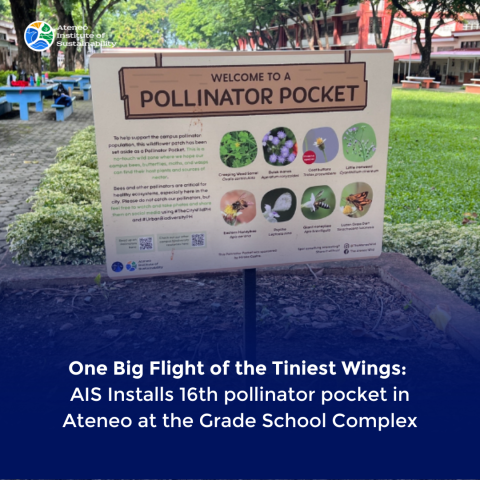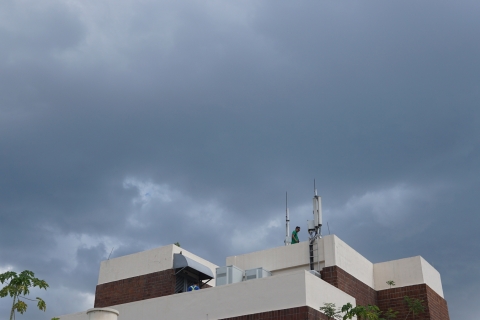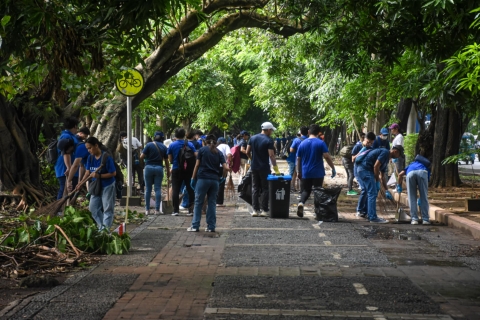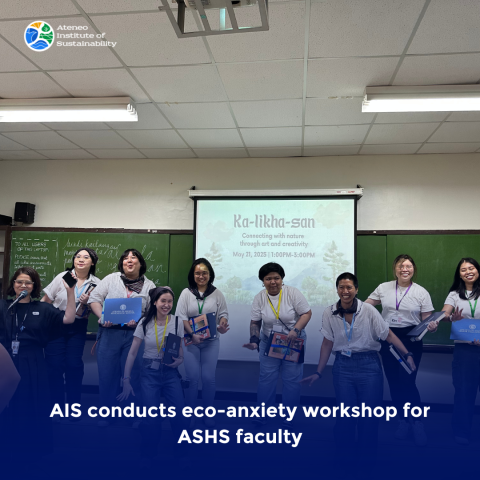Ateneo sustainable futures : The weight of water - remembering Typhoon Ondoy (international name: Ketsana)
14 Mar 2025 | Isabella Movido
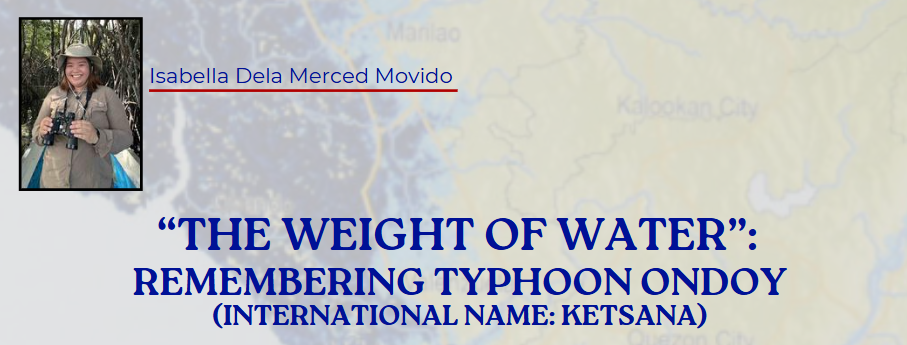
I was fearless when I was younger. At six years old, I watched for hours as Typhoon Ondoy (Ketsana) flood slowly seeped into my home and crept up the stairs. It engulfed everything: my family dinner table, the new lunchbox I never got to use, my sister's snow globe collection. All my childhood memories sunk under the weight of the water, but I wasn't fazed. My parents were away at the time, and I didn't even think about the panic they must have felt being separated from their children. I remained stuck in my world, playing with my toys as if all was well.
Shifting Perspectives
However, as the years passed, I began to see Ondoy not just as a childhood memory but as part of a larger crisis. The floodwaters had long receded, but their impact lingered, shaping how I understood the world and my place in it.
Choices
As I got older, I learned that Ondoy was a warning sign for how else climate change would affect the Philippines. When I was 13, I saw a documentary about the effects of animal agriculture and discovered how this exacerbated natural hazards. Suddenly, I wasn't so brave. I couldn't believe my everyday actions, something as simple as consuming meat, could lead to such drastic consequences. Right then, I committed to stop eating meat altogether. I felt helpless looking at the bigger picture, but I knew I could at least do this so no one would experience the calamity I did.
I spent the rest of my teenage years learning more about the environment and sustainability, and the more I knew, the more afraid I became. Every "offseason" typhoon, intense heatwave, or rainy summer reminded me that all this led to irreparable environmental damage. It was so easy to get lost in the narrative that our doom was inevitable because, often, we only see the losses and difficulties that come with tackling the climate crisis.
Being Part of the Solution
Growing up in a country constantly battered by typhoons, I used to believe that disasters were just part of life—unavoidable and inevitable. But as I grew older, I realized that while we cannot control the storms, we can control how we respond to them. The climate crisis is not just an abstract global issue; it is deeply personal, shaping our lives in ways we often fail to recognize.
As I gained more knowledge about the problem, I became exposed to the potential solutions.

I read articles, attended lectures, and discussed with my peers, and realized that I didn't need to feel so hopeless. So many people are out there fighting for a better future. There are apps that plant trees, citizens that lobby for better policies, and entire governments that fund innovative climate solutions. Organizations work on the ground with those directly impacted and address problems together. Across all sectors, we are making change happen.
I'm likely part of these solutions, too. While I haven't invented anything, I actively engage in the initiatives around me. I love supporting whatever opportunities come my way, from cleaning up Manila Bay to educating the public on the climate crisis.
These actions may be small, but my six-year-old self would be happy to know I never forgot about her, even at 22. When I feel overwhelmed by the constant threats to our planet, I return to the fearlessness I had then. I think about the world I want to help create and remember that in knowing that every step we take—no matter how small—brings us closer to that future.

